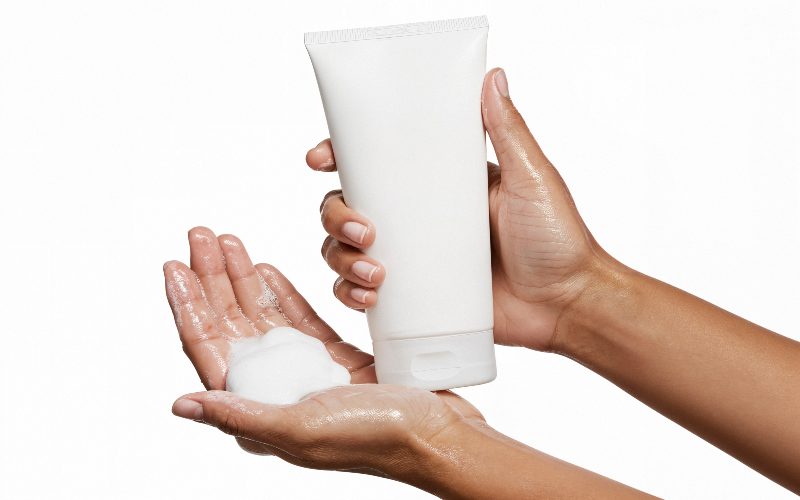From alcohol to fragrance: Six lotion ingredients that could be harming your skin

If your skin feels unusually dry despite frequent moisturising, the problem might not be your climate; it could be your lotion. Check your ingredient list.
When you reach for your lotion, the last thing you expect is that it could be drying your skin instead of hydrating it.
Yet, dermatologists warn that many popular moisturisers contain ingredients that strip moisture, irritate the skin barrier, or offer only a temporary illusion of softness without lasting hydration.
More To Read
- Study finds over half of skin-lightening creams contain unsafe mercury levels
- Expert tips: How to remove common clothing, upholstery and carpet stains at home
- How to layer beauty products - and why skincare needs more than 10 minutes
- Why some deodorants cost more - and why cheap isn’t always better
- Flaxseeds for heart, digestion, and beauty—Here’s why you need them
- How harmful skin lightening creams are affecting Kenyans
As temperatures rise and humidity fluctuates, understanding what goes into your skincare bottle could be the difference between glowing, supple skin and one that constantly feels tight or flaky.
Illusion of moisture
Most lotions are marketed as “hydrating” or “deeply moisturising”, but according to Nairobi-based dermatologist Dr Faith Njoroge, not all formulas live up to their labels.
“Some lotions use ingredients that create a smooth, silky feel on the surface but actually prevent your skin from retaining moisture underneath,” she explained. “It’s a short-term comfort that often leads to long-term dryness.”
1. Alcohol (denatured, SD alcohol, or ethanol)
A major culprit is alcohol, commonly listed as alcohol denatured, SD alcohol, or ethanol. It’s often added to make lotions feel lightweight and absorb quickly, a texture many consumers prefer.
However, alcohols are highly evaporative and can strip the skin’s natural oils, weakening the barrier that keeps hydration in.
“Alcohol gives that quick-drying, non-sticky finish, which feels nice initially, but it compromises your skin’s lipid layer,” said Dr Njoroge. “Over time, you’ll notice your skin getting rougher or needing more frequent reapplication.”
Not all alcohols are harmful, though. Fatty alcohols like cetyl, stearyl, and cetearyl alcohol are actually beneficial and help lock in moisture.
2. Fragrance and perfumes
That sweet, floral scent might be part of your lotion’s appeal, but fragrances are among the most common irritants in skincare.
“Fragrances, whether natural or synthetic, can trigger dryness, redness, or allergic reactions, especially for people with sensitive skin or eczema,” she said.
Even if your skin doesn’t visibly react, fragrance molecules can cause microscopic irritation, weakening the barrier over time.
Fragrance-free doesn’t have to mean boring; many unscented lotions still smell pleasant due to their natural ingredients.
3. Sulphates and harsh emulsifiers
While more common in cleansers, sulphates sometimes appear in body lotions as emulsifiers or foaming agents. Compounds like Sodium Lauryl Sulphate (SLS) and Sodium Laureth Sulphate (SLES) can strip away the skin’s protective oils.
“They help the product spread evenly, but they’re too harsh for dry or sensitive skin. If you see them on a lotion label, that’s a red flag.”
Gentler alternatives like glyceryl stearate or lecithin achieve similar results without damaging your skin’s moisture barrier.
4. Synthetic preservatives (parabens and formaldehyde releasers)
Preservatives extend shelf life, but synthetic types like methylparaben, propylparaben, or DMDM hydantoin have been linked to irritation and dryness.
“These chemicals can disrupt your skin’s microbiome, the layer of good bacteria that keeps the surface healthy,” explained Dr Njoroge. “When that balance is disturbed, the skin struggles to hold moisture.”
Safer options include phenoxyethanol, potassium sorbate, and sodium benzoate, which preserve lotions effectively without triggering dryness.
5. Petroleum and mineral oil
Petroleum-based ingredients like mineral oil, petrolatum, and paraffin are often marketed as powerful moisturisers, but their effectiveness depends on your skin type.
“They form a seal over the skin, which is good for preventing water loss in very dry environments,” said Dr Njoroge. “However, if your skin isn’t properly hydrated before applying, they can trap dryness instead of moisture.”
In other words, petroleum jelly locks in whatever is already on your skin. If that’s dryness, it stays dry. To benefit, always apply such products on slightly damp skin or layer them over a water-based lotion.
6. Silicones (dimethicone and cyclopentasiloxane)
Silicones give lotions a silky texture and smooth glide. But over time, they can create a barrier that prevents moisture and nutrients from penetrating the skin.
“They don’t necessarily cause harm, but they can lead to ‘false hydration,’” Dr Njoroge explained. “Your skin feels soft because of the coating, not because it’s genuinely moisturised.”
If your lotion lists multiple silicones among the top ingredients, it might be time to switch to a formula with humectants like glycerin or hyaluronic acid, which actually draw moisture into the skin.
What to look for instead
Dermatologists recommend choosing lotions with humectants, emollients, and occlusives that work in balance:
- Humectants (glycerin, aloe vera, urea, hyaluronic acid) attract water to the skin
- Emollients (shea butter, jojoba oil, ceramides) smooth and fill gaps in dry skin
- Occlusives (beeswax, natural oils) seal everything in
For those living in warmer, drier areas like Nairobi or Garissa, applying moisturiser immediately after showering, while the skin is still damp, is advised.
“It helps trap water and improve absorption,” she said.
Even “natural” or “organic” products aren’t automatically safe. Essential oils such as lavender, citrus, and peppermint can irritate dry skin, especially with daily use.
“The word ‘natural’ isn’t regulated,” warned Dr Njoroge. “Some natural ingredients are potent allergens. Always patch-test before switching brands.”
If your skin feels unusually dry despite frequent moisturising, the problem might not be your climate; it could be your lotion. Check your ingredient list.
Avoid harsh alcohols, strong fragrances, and occlusive-heavy formulas unless your skin truly needs them. Instead, opt for balanced, fragrance-free lotions rich in natural oils and humectants.
Top Stories Today














































